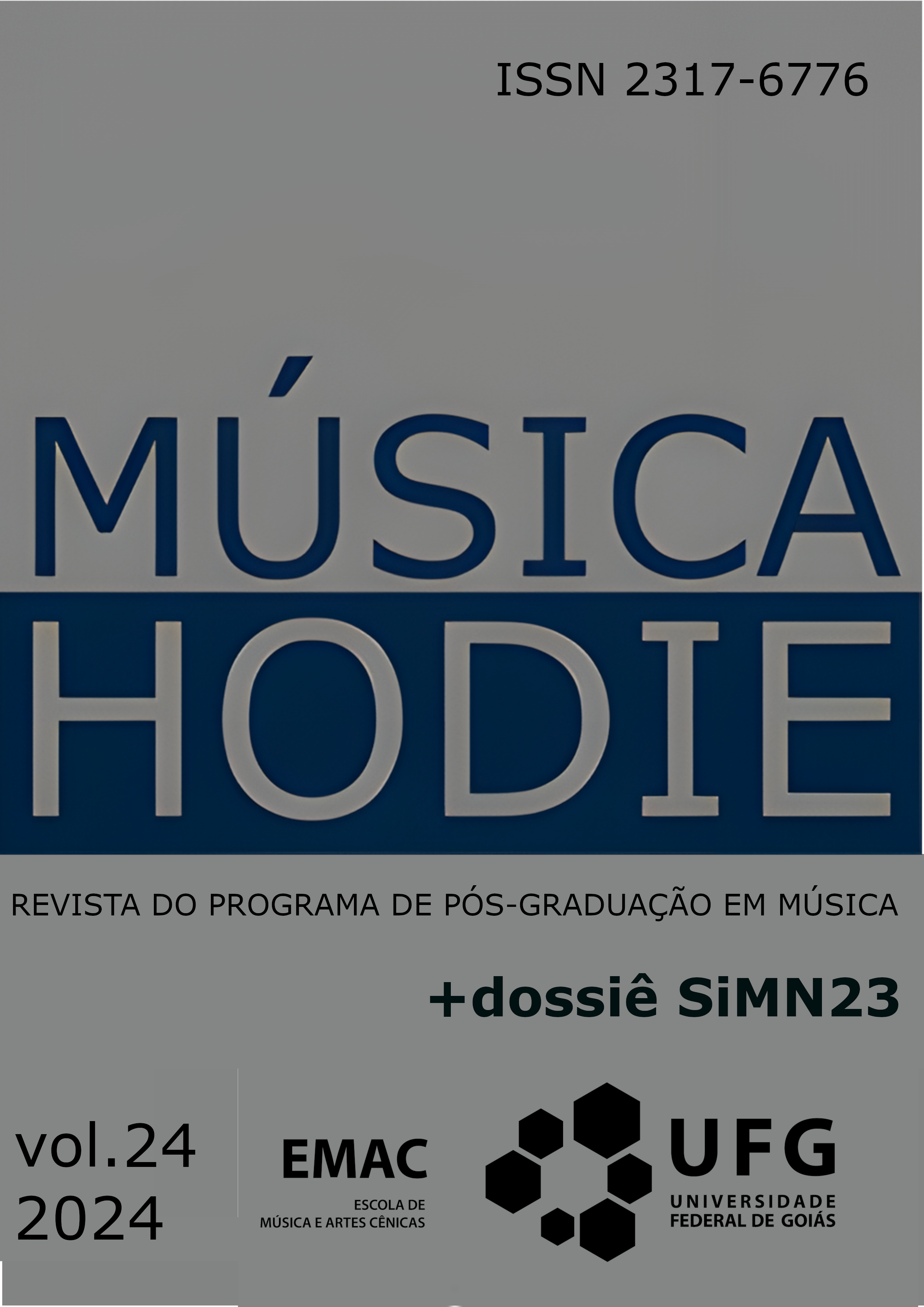Folclore Musical de Rugova:
Perspectivas sobre Canção, Dança e Patrimônio Cultural dos Habitantes das Montanhas de Kosovo
DOI:
https://doi.org/10.5216/mh.v24.77208Palavras-chave:
Kosovo Highlanders, folk art, ethnic traditions, monody, costume ornamentationResumo
À luz do impacto da globalização na homogeneização cultural, torna-se importante compreender o património musical distinto de grupos étnicos como os montanheses do Kosovo. Este estudo tem como objetivo descobrir as nuances da criatividade musical nacional dos montanheses do Kosovo, centrando-se em aspectos como as tradições vocais, de dança, teatrais e de jogo. Empregando métodos de análise, comparação e síntese, esta investigação examinou textos de canções originais e gravações coreográficas, aprofundando os aspectos multifacetados das artes musicais tradicionais orais de Rugova. A investigação revelou o conteúdo único e a diversidade estilística de várias formas de arte folclórica, incluindo a escrita de canções, a coreografia, as actuações teatrais e os jogos tradicionais. Identificou categorias-chave dentro de cada ramo do folclore, elucidando as características da música vocal de Rugova, tais como a textura monódica, a escala pentatónica e a instrumentação distintiva. Além disso, foi chamada a atenção para a especificidade e funcionalidade dos trajes tradicionais, que oferecem conforto e proteção no clima difícil de Rugova. O estudo apresenta a criatividade tradicional oral de Rugova como um sistema integrado que inclui múltiplos componentes, oferecendo assim novas perspectivas sobre o património cultural dos montanheses do Kosovo. As suas implicações práticas estendem-se a domínios como a musicologia, os estudos culturais, a performance folclórica e a etnografia.
Palavras-chave: expressões culturais. rituais folclóricos. transmissão intergeracional. tradições étnicas.
Downloads
Downloads
Publicado
Versões
- 2024-10-12 (2)
- 2024-10-07 (1)















